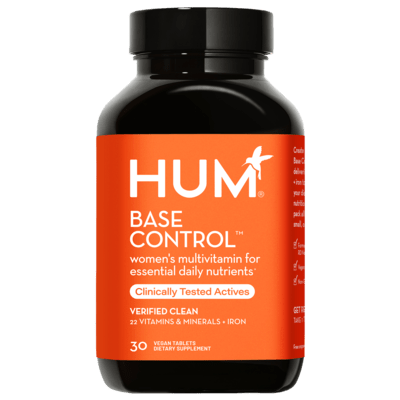Eating disorder recovery isn’t easy. However, it is possible with the right help and mindset. In this article, we’ll review the signs and types of eating disorders. Then, I’ll share actionable advice in achieving better health and self-acceptance with eating disorder recovery.

the Importance of Eating Disorder Recovery
First, let’s be clear: eating disorders are extremely common. The National Eating Disorders Association estimates that 20-million women and 10-million men in the US will suffer from an eating disorder at some point. For context, around four out of 10 people will either personally experience an eating disorder – or know someone who will. The prevalence of eating disorders is especially concerning for one big reason. Eating disorders actually have the highest mortality rate of any mental illness. Luckily, treatment for eating disorder recovery is very much possible. As much as 60 percent of people with eating disorders who seek treatment will recover. One need only commit to the process to get there.
What Does an Eating Disorder Look Like?
Here are common warning signs that you (or someone you know) may suffer from an eating disorder:- Avoids meals and social occasions that involve food
- Restricts food groups or refuses to eat certain foods
- Prefers to eat alone
- Preoccupied with food, calories, carbohydrates, fat content, and dieting
- Talks negatively about body and weight
- Shares feelings of shame and guilt after eating
- Frequent mirror-checking or weigh-ins
- Easily upset or irritable when dieting, food, or exercise is brought up
- Increased anxiety, stress, depression, mood swings, or inflexibility around eating
- Poor sleep and decline in physical condition (weight change, dizziness, cold intolerance, shakiness, thinning hair, dry skin, stomach cramps, dental issues, etc.)
Types of Eating Disorders
There are several types of eating disorders, and many of them share similar characteristics. Here are some of the most widely known eating disorders and symptoms:Anorexia Nervosa
Anorexia nervosa is characterized by severe food restriction. It leads to significant weight loss and a decline in health. Low energy, digestive issues, missing periods, and cold intolerance are common symptoms. Intense fear of gaining weight results in food restriction. It entails an obsession with food, calories, and dieting. Also, anorexics typically display perfectionist tendencies. They may also suffer from anxiety and depression.Bulimia Nervosa
Bulimia nervosa entails recurring episodes of binge eating. Those afflicted may compensate with purging, over-exercising, and/or abuse of laxatives or diuretics. Weight fluctuations, dental issues, and digestive distress are all typical side effects of bulimia. Like anorexia nervosa, it’s often accompanied by a fear of gaining weight, depression, and anxiety.Binge Eating Disorder
Binge eating disorder includes recurring episodes of compulsively consuming large quantities of food. Typically, binges are done in private. They’re associated with extreme feelings of guilt and shame. Additionally, binge eaters identify with terms like “emotional eater” and “food addict.” Large weight fluctuations, digestive distress, cyclic dieting restriction, and body dissatisfaction are all common in this disorder.Orthorexia
Orthorexia is marked by extreme fixation over the quality and purity of food. Orthorexics often fixate on the words “clean,” “pure,” and “healthy.” The rigidity of food preferences leads to malnutrition, weight loss, and emotional and digestive distress.Actionable Steps for Eating Disorder Recovery
Step 1: Find Your Team
To begin with, set yourself up with the support of professionals. Work with a team of a skilled eating disorder therapist, registered dietitian, and physician. This team is critical in helping work towards weight restoration. They can help assess appropriate caloric intake and develop consistent eating patterns. Futhermore, these specialists can also help correct physical and nutritional impairments. Additionally, you’ll focus on changing body-image issues and a negative food mindset.Step 2: Create Your Support System
Next, continue to build out your support network with friends and family. Establish which loved ones you’d like to include in your support system. Here’s why this step is so important: research shows that individuals with community support are more likely to recover from an eating disorder. For that reason, social support is an essential step to eating disorder recovery.Step 3: Reconnect with Your Body through Mindfulness
Then, incorporate mindfulness into your eating disorder recovery. You want to work towards having non-judgmental awareness of your feelings. This is especially important around food and your body. You can foster these mindful moments by sitting down for meals and eating slowly. Pay attention to the flavors, taste, and texture of your food. Meal mindfulness can encourage your ability to recognize hunger and fullness cues. In turn, you can respond appropriately to those cues.Step 4: Foster Compassion and Kindness
Next, it’s important to build up a positive inner dialogue with yourself. This step is crucial as you learn to set recovery-based boundaries and guidelines. Try adapting positive self-talk, self-reflection, and affirming dialogues. Although it may sound trite, even psychologists agree that affirmations can adopt proper perspectives on the self.Step 5: Discover the Joy in Movement
Then, those in recovery must learn a balanced approach to fitness. You can find joy in movement when you can exercise without compulsive thoughts and behaviors concerning food and body image. With that said, it’s important that those in recovery are nutritionally stable. Also, they should receive medical clearance to work out, plus ongoing monitoring from their team of professionals.Step 6: Embrace Your Body
Finally, accepting your body’s size and shape exactly as it is, is what it’s all about. All types of eating disorders affect one’s physical and emotional well-being by creating a disconnect from the body. To recover, one must learn to trust and appreciate their body. You can do so by listening to and taking care of its needs. Thus, in recovery, celebrate what your body can do for you. Let go of diet culture and the pursuit of unattainable aesthetics. Instead, focus on your body’s many strengths and capabilities.Final Thoughts
To reiterate, it’s possible to recover from an eating disorder. Specifically, research shows that one should go a full year without harmful behaviors to best prevent relapse. However, you really have to want to recover to make progress. Again, eating disorder recovery is different for everyone. But it’s attainable if you commit to the time and work it requires. Early detection and intervention are essential for eating disorder recovery success and relapse prevention. The path to eating disorder recovery is full of ups and downs. But knowing you’re on your way to a positive, healthy, and fulfilling life makes the journey worth it. If you or someone you know has an eating disorder, please visit the National Eating Disorder Association for resources, screening tools, and more information.More like this









